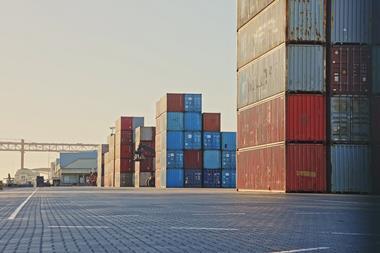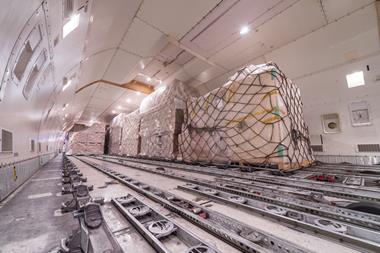
Air cargo could benefit from a reduction in ocean shipping reliability next year as box lines contend with antitrust rule changes.
Speaking at the TIACA executive summit, Xeneta chief airfreight officer Niall van de Wouw ranked the criteria shippers considered when selecting between air and ocean.
He said that reliability was by far the most important ahead of environmental impact and price.
Van de Wouw said that airfreight rates rise - indicating higher demand - when ocean schedule reliability decreases.
He pointed out that airfreight rates reached a peak in April last year when ocean reliability was at its lowest.
Looking at the current market, Van de Wouw said that the low rates in ocean sailing meant shipping lines were missing out sailings to balance supply and demand.
"Interestingly enough, we have seen [reliability] go down a little bit," said Van de Wouw. "They say there is a bloodbath in rates on the ocean side which means more blank sailings, they cancel the vessels, which reduces the reliability which makes shippers a little bit worried."
And next year there could be further disruption after the European Commission in October decided not to extend container shipping's block exemption from certain competition rules.
The current block exemption runs until April 25, but after this date container carriers will be less able to cooperate on operations.
"[Block exemption] will no longer be extended so there is a lot of concern about what the ocean freight market will look like from a supply point of view from April next year," said Van de Wouw.
"If that were to result in more competition, less consolidation, it could well be that certain niche markets become underserved, become less reliable, and therefore potentially supportive of airfreight demand."
During his presentation, Van de Wouw also looked at how much the cost differential between ocean and air factored into shippers' decision making when selecting between air and ocean.
He said that having spoken to shippers, they said they would always favour ocean unless there was an operational reason to select airfreight.
"When the [cost differential] changes over time, I don't think it will impact the need that shippers have for airfreight in a positive or a negative way.
"In a way, it is a little bit irrelevant. It will hurt their budgets but less so influence their decision."
Pressure to reduce emissions was more likely to have an impact on airfreight demand, he said, although even here the impact would be limited.
He pointed out that 97% of goods are already transported by ocean, and much of the remaining 3% has to go by air for various reasons, making it hard to switch to shipping.
https://www.aircargonews.net/policy/environment/air-cargo-faces-up-to-huge-issue-of-greenwashing/
https://www.aircargonews.net/airlines/air-cargo-outlook-subdued-demand-expected-in-2024/















